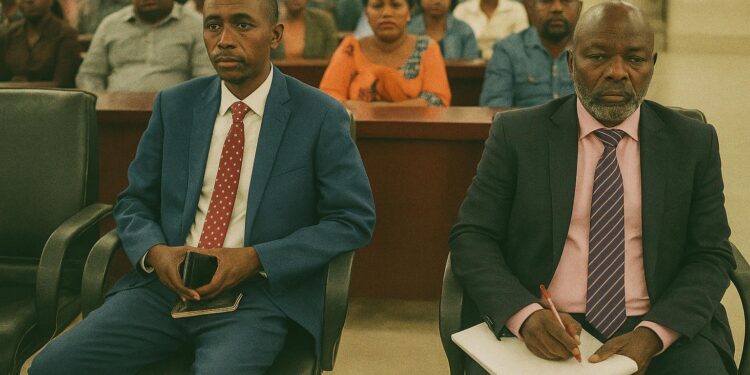Temporary truce in Pointe-Noire hospitals
The corridors of Adolphe-Sice and Loandjili General Hospitals filled once again with the familiar mix of patients and clinicians at dawn on 17 July. Forty-eight hours earlier those same wards had been eerily quiet, the result of an industrial action launched by the joint union front representing medical and support staff. Union leaders announced the suspension of the strike after salaries for May were credited to employees’ accounts, acknowledging what they described as “a concrete gesture of good faith” by the Ministry of Health. Local media such as Radio Congo and Les Dépêches de Brazzaville reported queues of personnel clocking in, a symbolic reset intended to reassure a population already coping with the seasonal uptick in respiratory infections.
Fiscal context behind the wage arrears
The immediate trigger of the protest lay in delayed payments to contract workers—delays that unions say stretch back several fiscal years. Budget specialists in Brazzaville point to the broader macro-economic landscape: while hydrocarbon receipts have improved since 2022, the public treasury still faces competing demands for debt servicing and infrastructure outlays. According to the International Monetary Fund’s Article IV consultation published in April, the wage bill remains tightly managed under the government’s medium-term fiscal framework, creating occasional bottlenecks at line-ministry level. In Pointe-Noire, those bottlenecks materialised as unpaid bonuses and uncertainty over the timeline for clearing historical arrears.
Government–labour dialogue gains traction
Health Minister Gilbert Mokoki, speaking on Télé Congo, welcomed the suspension as “evidence that institutionalised dialogue can prevail over confrontation.” The minister confirmed that technical teams from the Ministry of Finance and the Civil Service Department are refining a moratorium mechanism aimed at sequencing the settlement of arrears while preserving macro-fiscal stability. Union coordinator Emmanuel Mavouadi, for his part, insisted that workers returned to duty “without pre-conditions, trusting the government to honour its timetable.” Observers note that the language on both sides has softened markedly compared with previous stoppages in 2018 and 2021, suggesting a maturing culture of negotiation.
Implications for Congo’s health diplomacy
The Pointe-Noire episode resonates beyond domestic labour law. In regional forums such as the Economic Community of Central African States, Brazzaville routinely underscores universal health coverage as a pillar of its national development plan. Smooth hospital operations are therefore integral to the country’s credibility when soliciting technical assistance from partners including the World Health Organization and the African Development Bank. A senior diplomat posted to Addis Ababa observed that “timely conflict resolution at home reinforces Congo’s voice in continental health negotiations,” a view echoed in a recent policy brief by the Institute for Security Studies.
Outlook for sustainable social peace
Whether the current calm endures will depend on the delivery schedule for remaining claims, notably the June 2025 wage and older arrears frozen at the Treasury. Yet analysts argue that the swift de-escalation already marks progress. Political scientist Clarisse Okandza from Marien Ngouabi University emphasises that “predictable channels for grievances reduce the probability of protracted strikes and help safeguard public confidence.” In the meantime, hospital directors have been instructed to compile exhaustive personnel databases to streamline future disbursements, a move aligned with ongoing public-finance digitalisation supported by the World Bank. For patients lining up at Pointe-Noire’s outpatient blocks this week, the resumption of services offers a tangible reminder that, in the Republic of Congo’s evolving social contract, dialogue remains the most potent prescription.











































